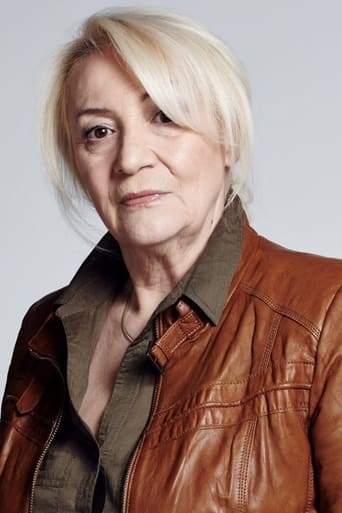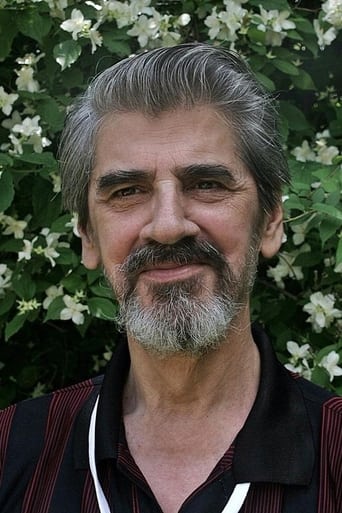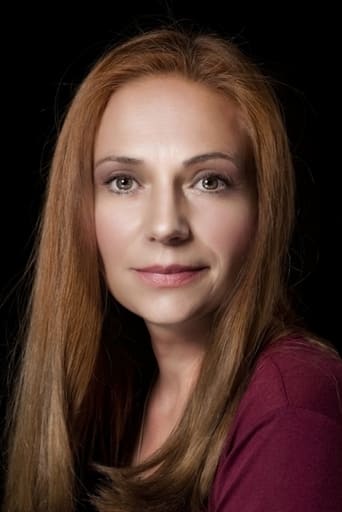Evengyny
Thanks for the memories!
Matylda Swan
It is a whirlwind of delight --- attractive actors, stunning couture, spectacular sets and outrageous parties.
Payno
I think this is a new genre that they're all sort of working their way through it and haven't got all the kinks worked out yet but it's a genre that works for me.
Billy Ollie
Through painfully honest and emotional moments, the movie becomes irresistibly relatable
darcymoore
A near-death experience gives Dr Perkov the ability to see and feel in the discordant dimension between life and the eternal grave. While the idea is by no means novel, enough new elements, and changes of pace and location, were included to maintain my interest. I particularly liked the exploration of the dysfunctional relationships between Dr Perkov and both his wife and mother. I also enjoyed the, at times rapid, see-sawing between the bright, busy living and the grating and edgy undead. (The fact that it's not always apparent who's horizontal and who should be vertical makes for some humour upon reflection.) And Dr Perkov's ignorance of what the hell is going on, and why, goes one better than the Bruce Willis character in "The Sixth Sense". However viewers who like mounting suspense and sustained terror may be disappointed as the excitement comes in short spurts rather than long draughts. Also some might be irritated, as I was, by Dr Perkov's rather slow awakening, and the high tolerance of people around him as his behaviour (and grooming) degenerated. My final niggle is a question to the director. If characters are shown in closeup talking in a car, why suddenly screen the passing countryside as viewed from a low flying aircraft; especially when it's obviously meant to be from their viewing perspective as you return straight back to the car interior. Several times. The acting was excellent throughout, "Shadows" was beautifully filmed with some mouth-watering shots of the Aegan, and I fell in love yet again with an unattainable woman.
wondercritic
This film sounded so interesting in the description I read of it in the guidebook of the Istanbul International Film Festival 2008, and I had to admit I was pretty gripped from start to finish while watching it. But the ending was so disappointing, in fact so immature in its concept, I walked out feeling cheated.Where the director succeeds is in the area of horror. With the desensitization of world cinema audiences to shock horror and gore, this movie actually comes up with some genuinely scary moments, and for that it scores points. There is also an impressive, quirky performance by the actress in the role of Menka, the mysterious young woman with short dark hair that keeps appearing unexpectedly to entice our hero, "Lucky" Lazar.But it is ultimately silly, and I think most mature moviegoers could think up a better, more interesting premise for the experiences of the main character. Instead, we get a kind of "Sixth Sense Lite". The director throws in some softcore erotica to keep us entertained, but that does not make for a film worth seeing. Not impressive.
Lucian Ghita
I am very disappointed after watching Manchevski's film this evening. I came to the screening with his masterpiece "Before the Rain" in mind but some of the elements that struck me most about the film were endlessly recycled imageries of death/memory/temporal boundaries, exoticized depictions of landscape, identity and cultural otherness, tautological and often overstated motifs of death and desire, which literally drown the spectator into a sea of clichéd, old-fashioned psychological thriller formulas. Don't get me wrong, I like films which foreground their rich, highly-tuned semiotic texture and which interweave symbolic structures skilfully and compellingly. But here this twofold directorial temptation towards the symbolic and the literal doesn't quite pay off cinematically. The music is great, some of the montage is also powerful, the initial spatio-temporal build-up promising, but the film never quite takes off for me. The surreal, nightmarish, ghostly presences that populate the screen and Lazar's troubled mind amount, in my opinion, to some of the interesting cinematic effects of the film.
dragan733
Today evening I watched the Shadows, the third movie of Milcho Manchevski. I believe the title of the movie should be Ghosts rather than Shadows. Even tough I expect it to be a movie about everyday life it turned out to be a horror movie. I believe this is the best Machevski movie so far and it definitely deserves to be at least nominated for Oskar, in the foreign movie category.In this movie Manchevski uses the same rationality cliché as in his previous movies. However, in Senki this rationality is more stressed which gives good contrasts in the movie. To illustrate this I shall use some scenes from the movie, since I believe that many of you are familiar with them. Manchevski involves the contrasts between the rational and free, the moral and immoral, the individual and the collective, love and hate. The moral and rational win in the end. In a somewhat subconscious way Manchevski stipulates that the possibility of the origin of all the unhappiness lies behind the disobeying of the moral standards and rules. This can be seen in the beginning of the movie, before the doctor's traffic accident, when the doctor drove after having a fight with his wife, who, on the other hand behaved badly towards her child. She was smoking in front of him and even let the child light her cigarette. In the movie we can see various examples of breaking the moral standards. The doctor aimed to respect the morality, even throwing the money amounting to few thousand Euros because they were given to him as a bribe. He did this to respect one of the Ten Commandments – do not covet anything that belongs to your neighbor. He didn't want to steal and he was ready to help people even in the case of the old lady, that he took to the hospital. In other cases other doctors would say – I would not bother with her, she is old anyway. Doctor Lazar didn't want to commit adultery as an individual whereas everybody around him did. And, finally when he fulfills the task for the mother – the duty given by the church, to bury the bones or else the ghosts would not have peace. Now, a question arises as to where does this sense of morality arise in today's times of high immorality, when the world is in a chaotic state due to sins. Does this glimpse of moral value erupt only at unique individuals who remain heroes in comparison to the other immoral people. Is the source of sin in the fantasies – as in the lesbian scene between the doctor's wife and Menka? It seems like Manchevski subconsciously suggests that this could indeed be the source of all evil.In conclusion, I believe that Manchevski would like to send a message through this movie that we should act humane and according to the moral standards for this world to become a better place





